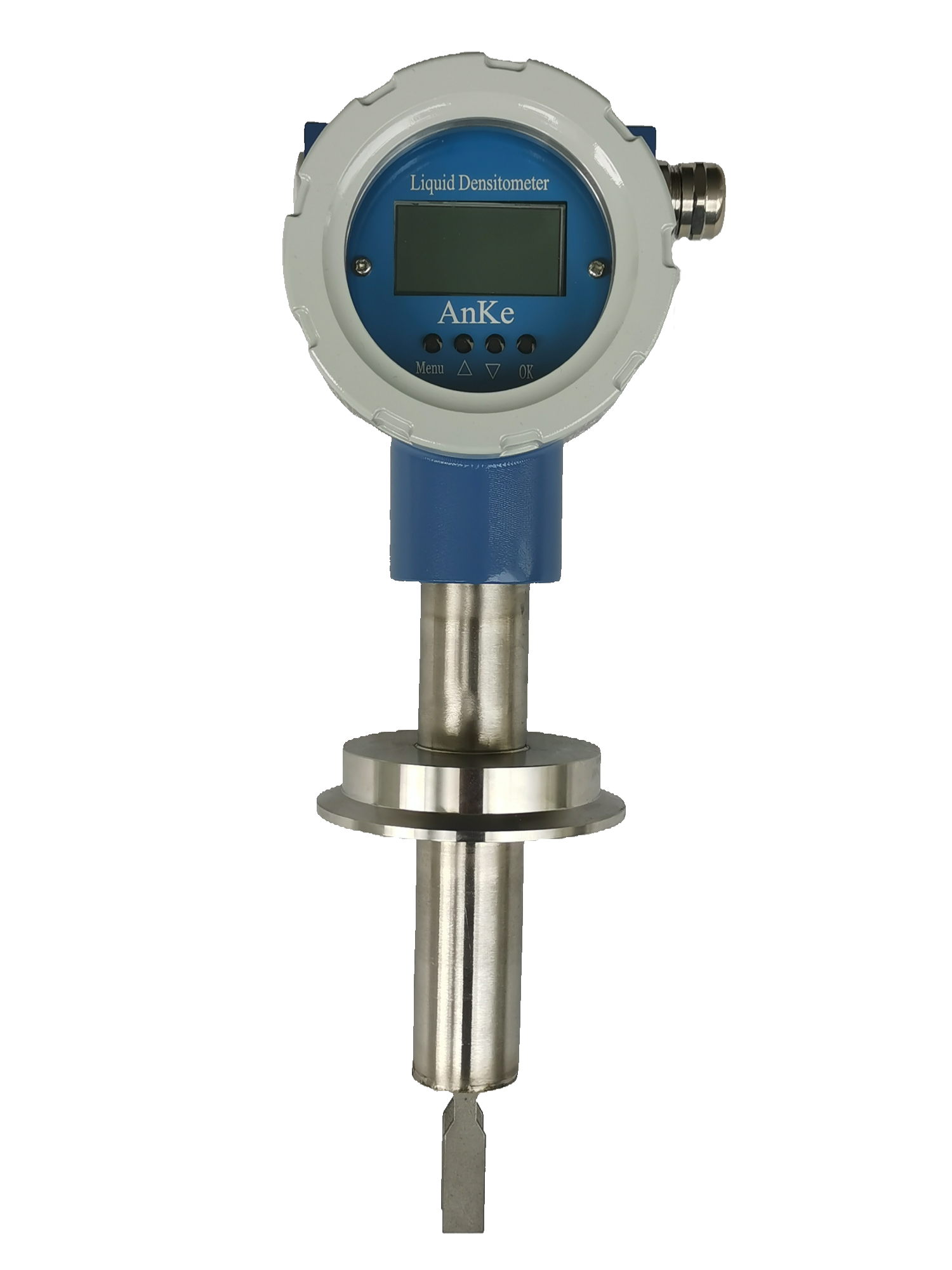Alcoholmeter
Keywords: R&D tuning fork densimeter, zirconia oxygen analyzer
Category:
Product Details
TFEX-8-MD Model Alcohol Specific Density Meter
1. Overview: The TFEX-8-MD alcohol-specific online density meter is designed for precise online measurement and data acquisition of alcohol. As a stable and reliable in-line density meter/online concentration meter requiring minimal maintenance, it provides a fully integrated "plug-and-play, maintenance-free" density and concentration measurement.
2. Product Advantages:
﹡Fully integrated "plug-and-play, maintenance-free" digital measurement
﹡No moving parts, suitable for continuous measurement, no maintenance required
﹡Flexible and easy installation, no debugging required
﹡Small overall size, low space requirements on site
﹡Unique in-line design, length up to 80 meters
﹡Integrated transmitter allows for analog and digital communication
﹡Strict factory testing and verification ensure accuracy and performance
﹡Allows for continuous real-time measurement in pipelines, bypasses, and tanks
﹡Available in various corrosion-resistant materials
﹡Excellent reliability and safety
﹡Optimized design—not easily affected by vibration or pressure changes
﹡Automatically compensates for the effect of temperature on the density of the measured medium during density detection
3. Product Features:
①TFEX-8-MD Alcohol Specific Online Density Meter Uses an industrial-grade, high-performance single-chip microcomputer integrated circuit. A microprocessor performs complete signal conditioning, calculation, and diagnostic functions, eliminating the need for remote electronic devices. High accuracy, good stability, and strong anti-interference capability.
②Input and output signals are completely isolated, facilitating anti-interference system design for users.
③Power supply uses an isolated circuit design, wide-range precision power supply, impact-resistant, anti-interference.
④Sensor signals use photoelectric isolation design 。
4. Application Range
Typical industries include the petrochemical industry, brewing industry, food industry, pharmaceutical industry, and mineral processing (such as clay, carbonates, silicates, etc.). Specific applications include interface detection in multi-product pipelines in the above industries, density detection of stirred mixtures, endpoint monitoring of reactors, and interface detection of separators.
5. Application Industries
﹡Measurement of liquid density and concentration in chemical raw material production
﹡Measurement of alcohol density and concentration in the disinfection industry
﹡Measurement of density and concentration in alcohol in the food industry
﹡Measurement of alcohol density and concentration in the pharmaceutical industry
﹡Measurement of density and concentration of chemical reagents and chemical liquids such as alcohol
﹡Breweries, etc.
Working Principle
The sensor operates on the principle of component vibration. The component part is the tuning fork immersed in the liquid to be measured. The tuning fork part senses the vibration through an internal piezoelectric device fixed to the bottom end of the fork. The oscillation frequency is detected by a secondary piezoelectric device fixed to the other end of the fork, and then the signal is amplified by the circuit at the top.
The liquid concentration and the vibration frequency of the measured liquid during flow are closely related. When the concentration of the measured liquid changes, the vibration frequency of the liquid flow also changes. The concentration of the measured liquid can be accurately calculated using the following equation.
D = K0 + K1T + K2T2
D = Uncalibrated density of the measured medium (kg/m3)
T = Vibration frequency (μs).
K0, K1, K2 = Constants
7. Technical Parameters :
|
Concentration Measurement Range |
0-30%; 0-50%; 0-100% range selectable |
|
Concentration Meter Calibration Range |
0-30%; 0-50%; up to 0-100% |
|
Concentration Measurement Accuracy |
0.5%; 0.1% |
|
Repeatability |
± 0.05% |
|
Density Measurement Range |
0.5 – 2.5 g/cc (500 – 2500 kg/m 3) |
|
Density Measurement Accuracy |
± 0.001 g/cc (± 1 kg/m 3 )/± 0.002 g/cc (± 2 kg/m 3) |
|
Temperature Output Range |
-20℃ ~ +85℃ |
|
Maximum Operating Pressure |
10MPa; Special 20MPa |
|
Fluid Viscosity Range |
0 – 20000 cP |
|
Temperature Coefficient |
Less than 0.1 kg/m 3 /℃ (after calibration) |
|
Pressure Influence |
Negligible |
|
Built-in temperature sensor |
PT100 |
|
Wetted material |
316L/304 Stainless Steel Hastelloy |
|
Fork coating |
Standard, PTFE or Electropolished |
|
Power supply |
24VDC, ≥500mA |
|
Analog signal output |
4-20 mA, 0-1000Hz, RS485 Modbus RTU |
|
Output accuracy (20℃) |
± 0.5% FS of reading; ± 0.1% FS of reading |
|
Output repeatability (-20 ~ +85℃) |
± 0.05% FS |
|
Process connection |
ANSI 150 ~ 1500 RF DIN 50 PN16 DIN 50 PN40 IDF and RJT Hygienic |
|
Explosion-proof mark |
Ex d IIC T6 Gb |
|
Protection class |
IP65 |
|
Housing |
Aluminum alloy |






